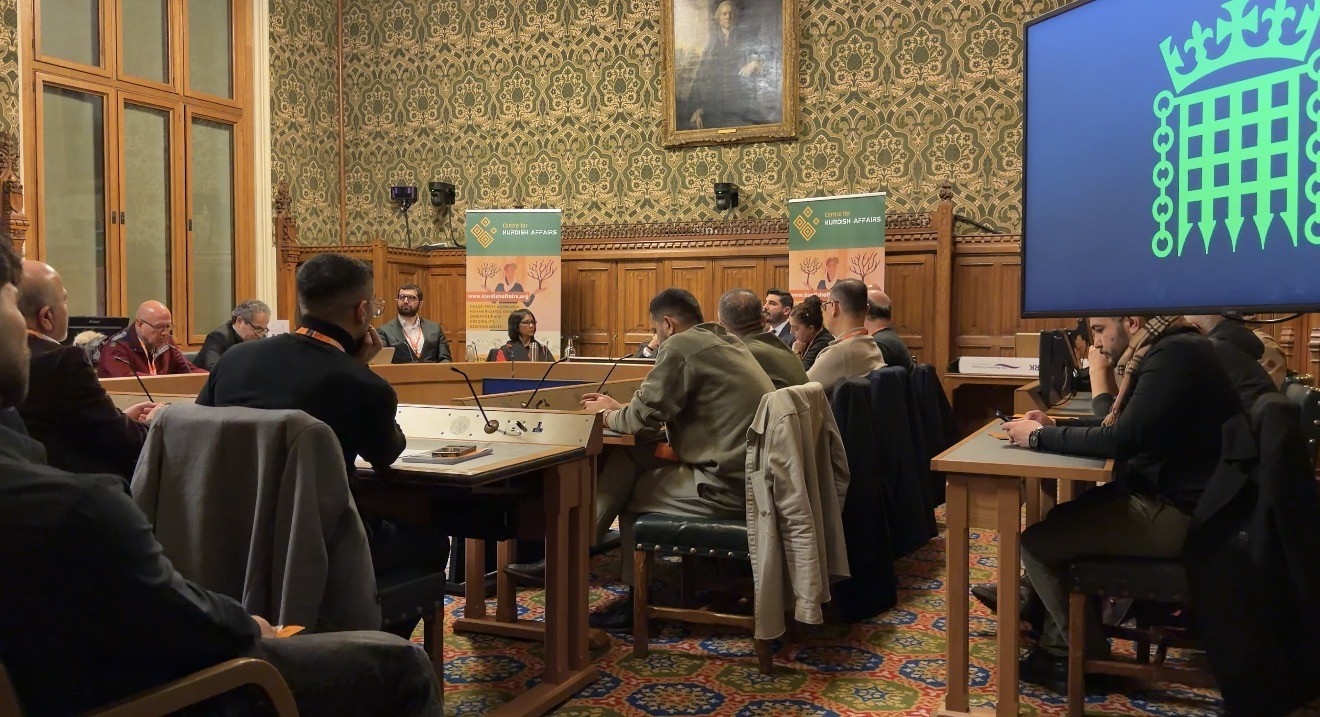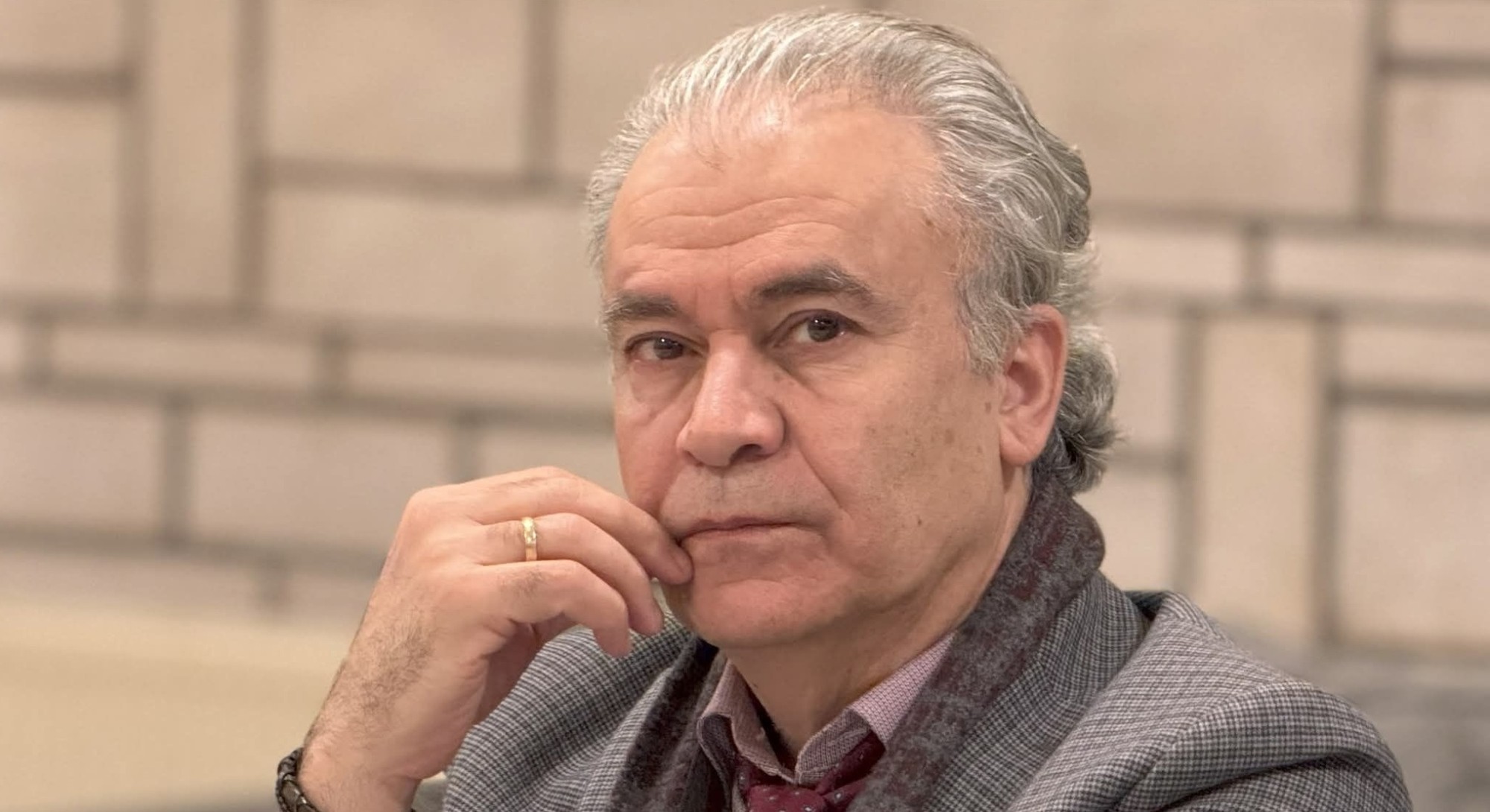Dr. Hemin Akreyi, a visiting lecturer in the politics and international relations program at the University of Kurdistan Hewler (UKH), published a new book titled Assessment of Failed Federalism in Iraq: Federal in Name Only with Routledge, one of the world’s leading academic publishers, in September.
The book explores the evolution of federal relations in Iraq from the adoption of the 2005 federal Constitution to the 2017 Kurdistan Region independence referendum.
“The book is an assessment of failed federalism in Iraq. We believe federalism doesn’t function as intended under the Constitution,” Akreyi told Kurdistan Chronicle in an interview during a book launch event at UKH on November 28 “It highlights the dysfunction of federalism, particularly between 2005, when the federal constitution was approved by the majority of Iraqis, and 2017, following the Kurdistan independence referendum.”
“During this period, federalism was not implemented as it should have been, and we highlighted this dysfunctionality in the book,” Akreyi explained.
For this book, Akreyi utilized nearly 400 references and conducted 26 in-depth interviews with decision-makers and foreign diplomats, including Iraqi Kurdish, Sunni, Turkmen, and Shi’a leaders.
This included Kurdistan Region President Nechirvan Barzani, Iraq’s former Foreign and Finance Minister Hoshyar Zebari, Chief of Staff to the Kurdistan Region President Fuad Hussein, and senior Kurdish politician Mahmoud Othman, who has been actively engaged in Iraqi politics and dialogue between the Kurdish political movement and the Iraqi state since the 1960s and 2000s.
The University of Kurdistan Hewlêr (UKH) proudly hosted a book launching and discussion session titled “Assessment of Failed Federalism in Iraq: Federal in Name Only” authored by Dr Hemin Akreyi, #UKH graduate and currently a visiting lecturer at our Politics & International… pic.twitter.com/K4B8L3L5vM
— University of Kurdistan Hewlêr (@UKH_official) November 29, 2024
“The conclusion is clear: federalism has not been implemented in Iraq, even after the independence referendum held in 2017, and Arab elites and scholars admit this dysfunctionality. The federalization program outlined in the Constitution was meant to allow other regions, such as Sunni and Shi’a federal regions, to form legally. However, after the Shi’a assumed power, they backtracked,” Akreyi added.
“Initially, they supported federalism, expecting the Sunnis to stay in power with U.S. backing. But once in control, they consolidated the grip on power in Baghdad and step-by-step they tried to centralize Iraq.”
Akreyi noted that the push for centralization began after 2011, under then-Prime Minister Nouri al-Maliki, who in 2014 cut the Kurdistan Region’s budget, leaving public employees without their monthly salaries.
Furthermore, he explained that federalism encompasses sharing power, revenue, and territory. For instance, Article 140 mandates resolving the status of disputed territories such as Kirkuk, Khanaqin, and Sinjar through normalization, a census, and a referendum on joining the Kurdistan Region or staying in federal Iraq.
Akreyi emphasized that the disputed territories should be resolved under Article 140, but this article has never been implemented. Similarly, a new hydrocarbons law was never passed in Iraq’s parliament.
“Although an initial draft was agreed upon, it was altered in the Shura Council to centralize control, which the Kurdistan Region rejected,” Akreyi said. “This failure to implement key principles of federalism – power-sharing, revenue-sharing, and territorial sharing – has undermined the system.”
He also noted that Iraq continues to operate under some outdated laws, such as the 1976 oil law.
“Even though Saddam and the Ba’athist regime were removed, these old frameworks remain in use, and not much about the mentality of Iraqi authorities has been changed in Baghdad.” Dr. Akreyi also noted that a federal system requires federalists while this is,still, missing in Iraq.
In the last chapter of the book Akreyi writes that if the main Shi’a and Sunni factions want Iraq to remain stable and united, they should first redefine federalism for Iraq and allow the system to be implemented across the whole country as enshrined in the Constitution.
“Given the previous experience between 2005 and 2017, the Kurds should be given asymmetrical, not symmetrical, federal status. In the meantime, for a functioning federal system, at least two federal regions and two councils - A Council of Representatives and Federation Council – are required. Both are absent in Iraq. The Iraqi government and the Kurdistan Regional Government should also respect and implement the Constitution and amend it by consensus. If not, Erbil and Baghdad relations should be organized on a confederal basis; otherwise, Iraq will remain unstable and the Kurdistan Region, at least in the short term, will practice de facto confederalism or a quasi-state within its current boundaries, like during the pre-2003 period,” Akreyi concludes in the book.
David Romano, Thomas G. Strong Professor of Middle East Politics at Missouri State University, congratulated Akreyi in a video message during the book launch.
“The book is the result of interviews with all the major players and thinkers on federalism in Iraq and large amounts of intense research and addresses a really important question regarding the future of Iraq as well, and the chances of making federalism succeed in Iraq. It was my pleasure to supervise the doctoral thesis that served as the basis for the book, and I’m sure it will make a long, lasting, enduring contribution to the literature on Iraq federalism and Kurds.”

